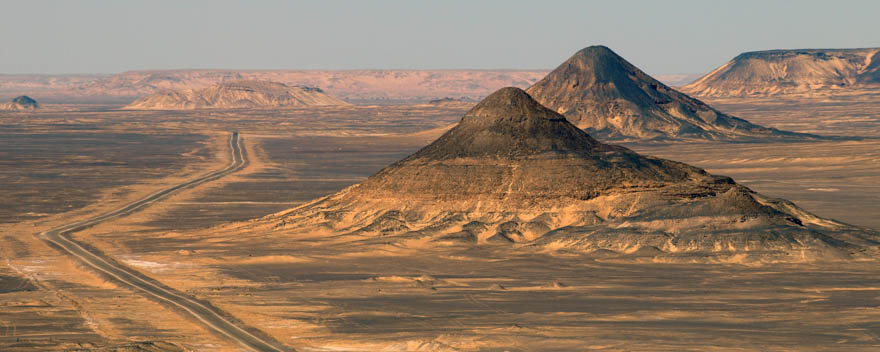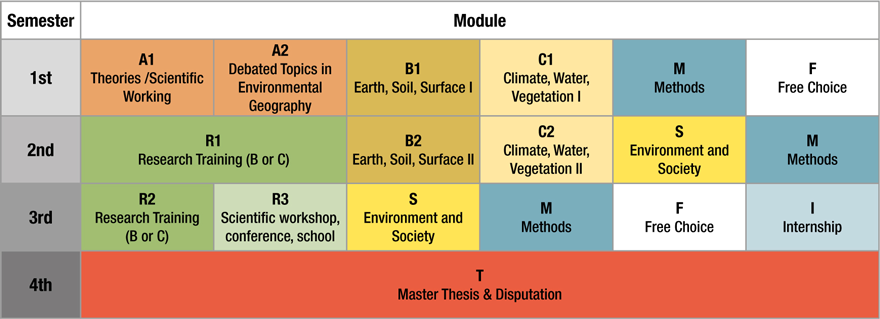M.Sc. Programme
You are interested in studying Environmental Geography in the Master's Programme at the University of Bayreuth? Get a first overview and more detailed information here.
The English-taught M.Sc. programme ‘Environmental Geography’ at the University of Bayreuth provides expertise and practical experience in the field of environmental systems science from an explicitly interdisciplinary perspective. The combination of core areas in the natural sciences and contextualization from the social sciences (e.g. ecosystem services and geographical conflict research) ensure that our students receive training that is unique in Central and Eastern Europe.
Research-led teaching, state-of-the-art quantitative methods, and training facilities such as a dating laboratory or the University’s Botanical Garden allow for an application- and target-oriented programme of study. Students receive training in the analysis and evaluation of complex environmental systems, in critical reflection upon the research process, in abstraction of research results, as well as in oral and written communication of findings.
The M.Sc. programme "Environmental Geography" at the University of Bayreuth is taught in English and provides expertise and practical experience in the field of environmental systems science. Interdisciplinarity plays a big role: The combination of core areas in the natural sciences and contextualization from the social sciences (e.g. ecosystem services and geographical conflict research) ensure that our students receive training that is unique in Central and Eastern Europe.
Teaching with a strong focus on research, state-of-the-art quantitative methods, and training facilities such as a dating laboratory or the University's Botanical Garden provide the basis for an application- and target-oriented study programme. Students receive training in the analysis and evaluation of complex environmental systems, in critical reflection upon the research process, in understanding and evaluating results, as well as in oral and written communication on findings.
The thematic structure of the M.Sc. programme consists of
- a general module (A) dealing with different environmental topics,
- the module "Earth, Soil, Surface" (B) with a strong focus on geomorphological processes in relation to current environmental challenges,
- the module "Climate, Water & Vegetation" (C) covering topics in the range of ecological climatology
- and a module in "Environment & Society" (S) where environmental change and its relation to socio-cultural impacts is assessed.
In addition, different courses of the
- Methods module (M) and a range of free choice courses (F) can be chosen freely and individually by the students - depending on their personal interests.
- For the internship module (I), you can reinforce your career-oriented qualifications with a mandatory internship in a non-university setting.
- The research module (R) serves the students' involvement with the process of research.
- The 4th semester is intended to be used for writing the master thesis and its disputation (T).
In general, this Master's Programme is intended to give the students a variety of choices. Apart from the mandatory courses, you can choose courses from other Master Programmes to find the ones suiting your personal interest best.
For further details on the modules as well as their ECTS awarded, please refer to the study plan:
For a detailed insight in aims and structure of the M.Sc. programme as well as the module descriptions, please have a look at the study guide:


